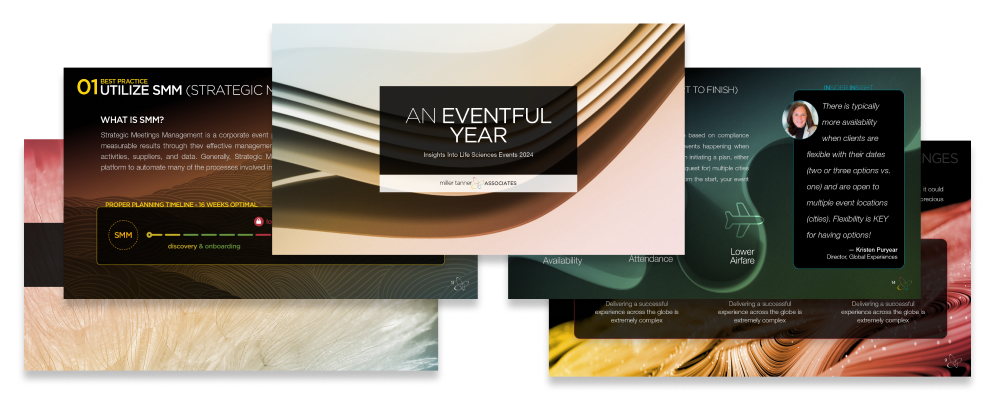To the leaders in life sciences: our industry is at an inflection point. The way we engage HCPs today will define how we adapt tomorrow. The challenge is not whether change is needed, but how wide the gap has already grown. While 82% of executives believe their engagement strategy is effective, only 28% of HCPs feel their needs are truly being met.
This is my call to action: do not just acknowledge the value of technology. Invest in it at the scale required to drive change.
My background in highly regulated industries taught me the importance of precision and trust. Throughout my tenure at Miller Tanner Associates, I have partnered with global pharma and biotech leaders on engagements that span continents and therapeutic areas. This work has exposed me to challenges and opportunities that cross borders and disciplines, and it continues to shape how I think about meaningful engagement.
From Singapore to Chicago, the stories are the same: investigators balancing impossible timelines, oncologists pressed for time but eager for connection. These moments remind me that data is not about dashboards. It is about people.
The numbers reinforce this:
- HCPs report that 35% of their prescribing decisions* are influenced by the quality of engagement they receive.
- A top-ten pharma company achieved up to a 10% ROI lift **when they aligned digital and traditional engagement.
- Yet only 28% of HCPs feel their needs are being met, compared with 82% of executives who believe their strategy is effective.***
The right data management technology can change the tone of leadership discussions. Not just financials like budget and spend, but the structured feedback intelligence that shows what resonated, where confidence grew, and where blind spots remain. With AI-enhanced tools like MTA’s EPIC Insights, I have been able to shift conversations from “what did we spend?” to “what impact are we making?”
And that is where thought leadership matters most. Sometimes the risk is not in failing to see the future, but in seeing it clearly and not acting boldly enough. Netflix recognized streaming as the future long before it was profitable. They invested big. Today, their bet on streaming is studied as one of the boldest pivots in modern business.
In life sciences, the same truth applies: if we do not adopt, we do not adapt. Leaders already see the value. The question is whether they will invest at the scale required to make it transformative.
That is the kind of work I want to continue driving, powered by data, defined by people, and led with vision.
How is your organization scaling its data and technology investments to meet the future we all see coming?
This article was originally published on LinkedIn. To read, click here.
Key Account Manager Imane Amajoud specializes in the early stages of account management for MTA’s life science customers, focusing on discovery, scoping, and relationship building. Fluent in Arabic, French, and English, she leverages global experience to understand each customer’s unique needs and deliver tailored strategies.
Sources:
(*):https://dt-consulting.com/wp-content/uploads/2024/07/DT-Consulting_46_The-State-Of-Customer-Experience-In-The-Global-Pharmaceutical-Industry-2024-HCP-Interactions.pdf



